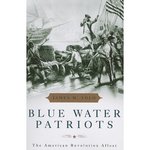The Boston Tea Party, The Foundations of Revolution
A Disreputable Breach of Trust
On the night of December 16, 1773, several thousand people massed in the chilly streets of Boston to listen to a speech given by political radical and long-time colonial rabble-rouser Samuel “Sam” Adams who targeted the shipment of tea belonging to the East India Company sitting on three ships tied up at Griffin’s Wharf. His speech was filled with bold utterances of colonial consensus and dire warnings of an impending loss of liberty should Americans succumb to the tax on tea. People liked tea, but the tax imposed on it by Parliament had given offense to all but the staunchest friends of the Crown. The Boston Tea Party is one of the most iconic symbols of the American Revolution, but it may not have precisely mirrored the causes for which Americans went to war.
The wealth of a lifetime is spent by government in a minute.
The American nation has been in debt continually since its inception. In a letter to financier and member of Congress Robert Morris in 1781, Alexander Hamilton wrote, “A national debt, if it is not excessive, will be to us a national blessing.” Few politicians would make such a bold statement today. Even some of Hamilton’s contemporaries found the idea of enshrining debt as a blessing somewhat disconcerting, making of it a persistent point of partisan contention. Yet the question remains at what level (if any) would Hamilton and his contemporaries have considered the accummulated national debt to have grown to be “excessive” thereby turning a blessing into a national curse.

